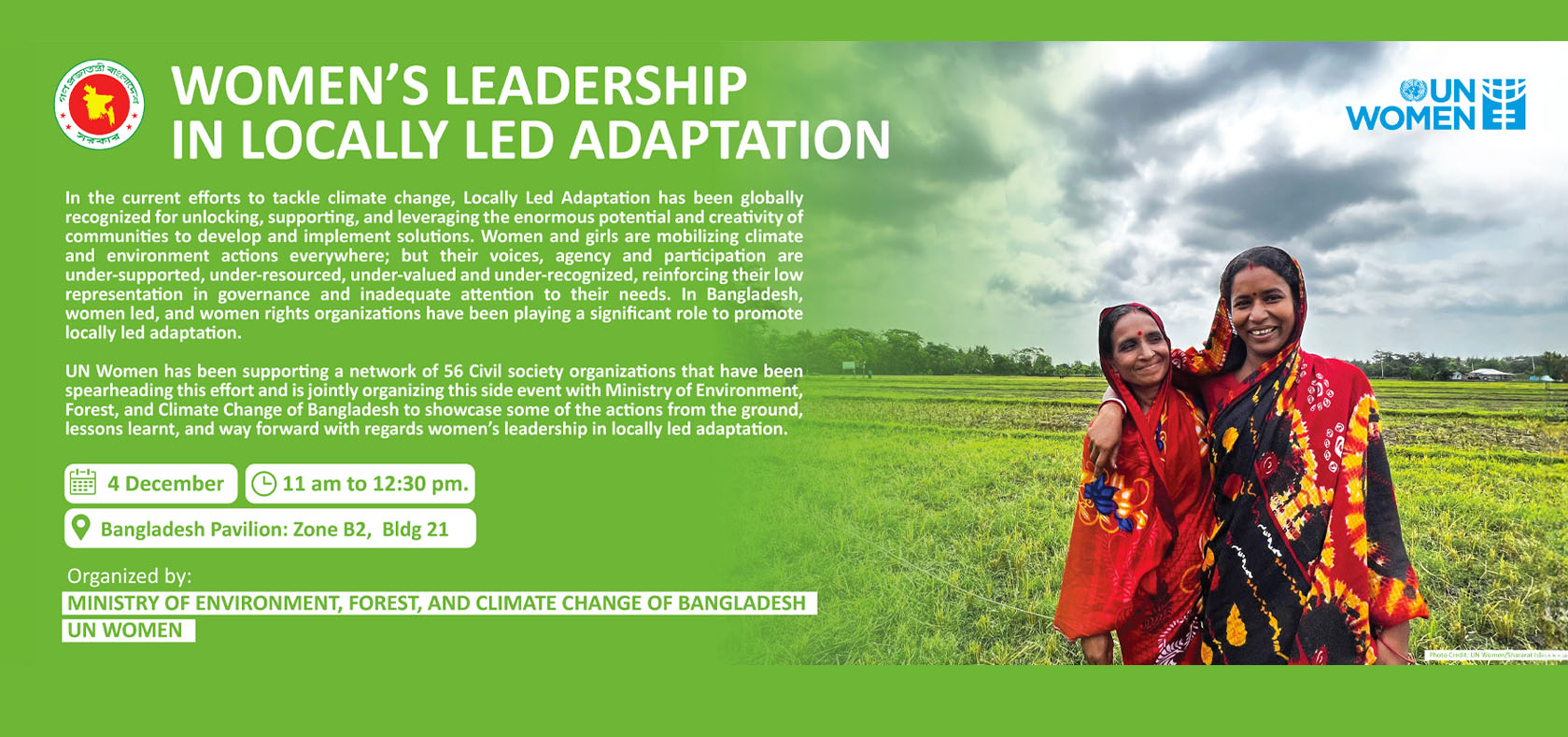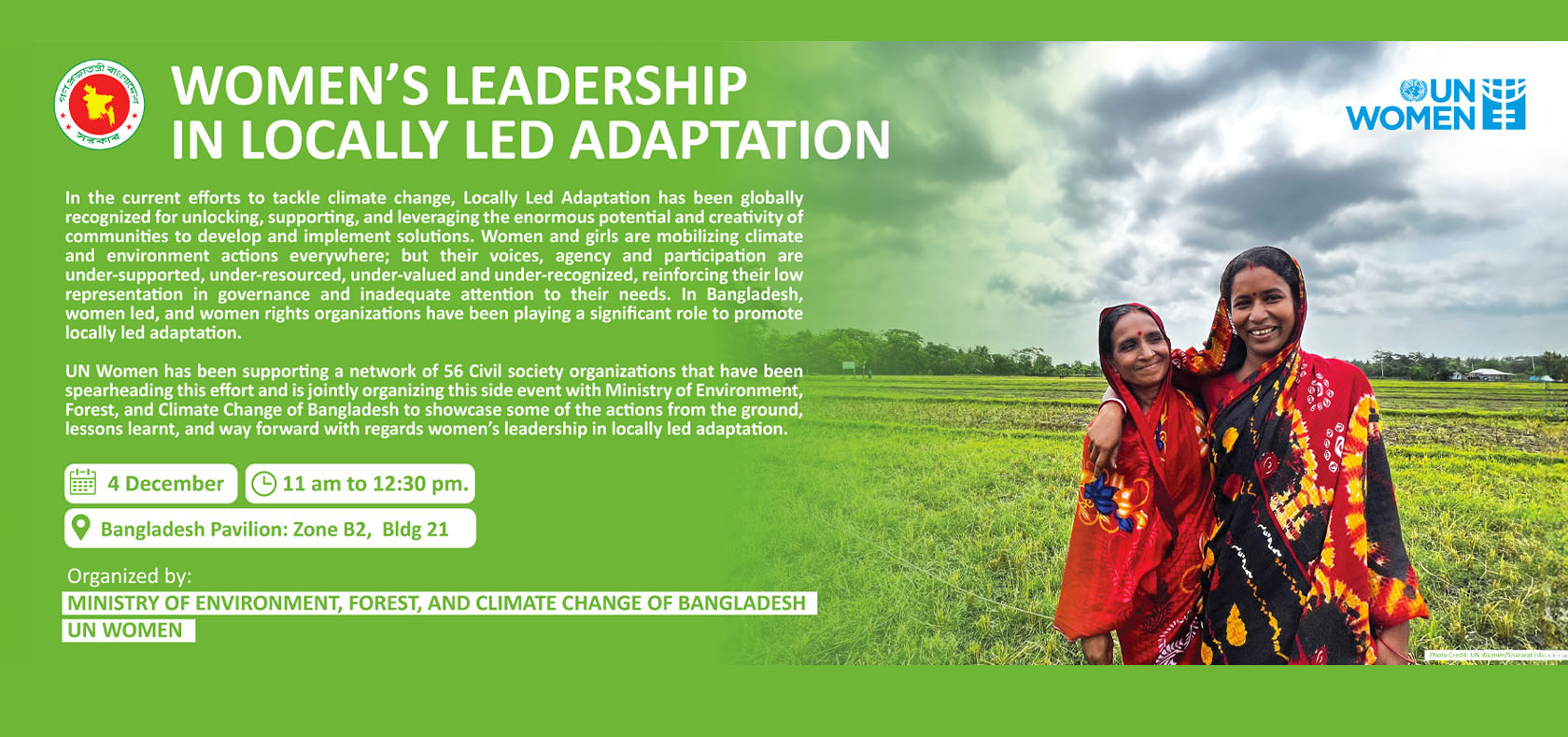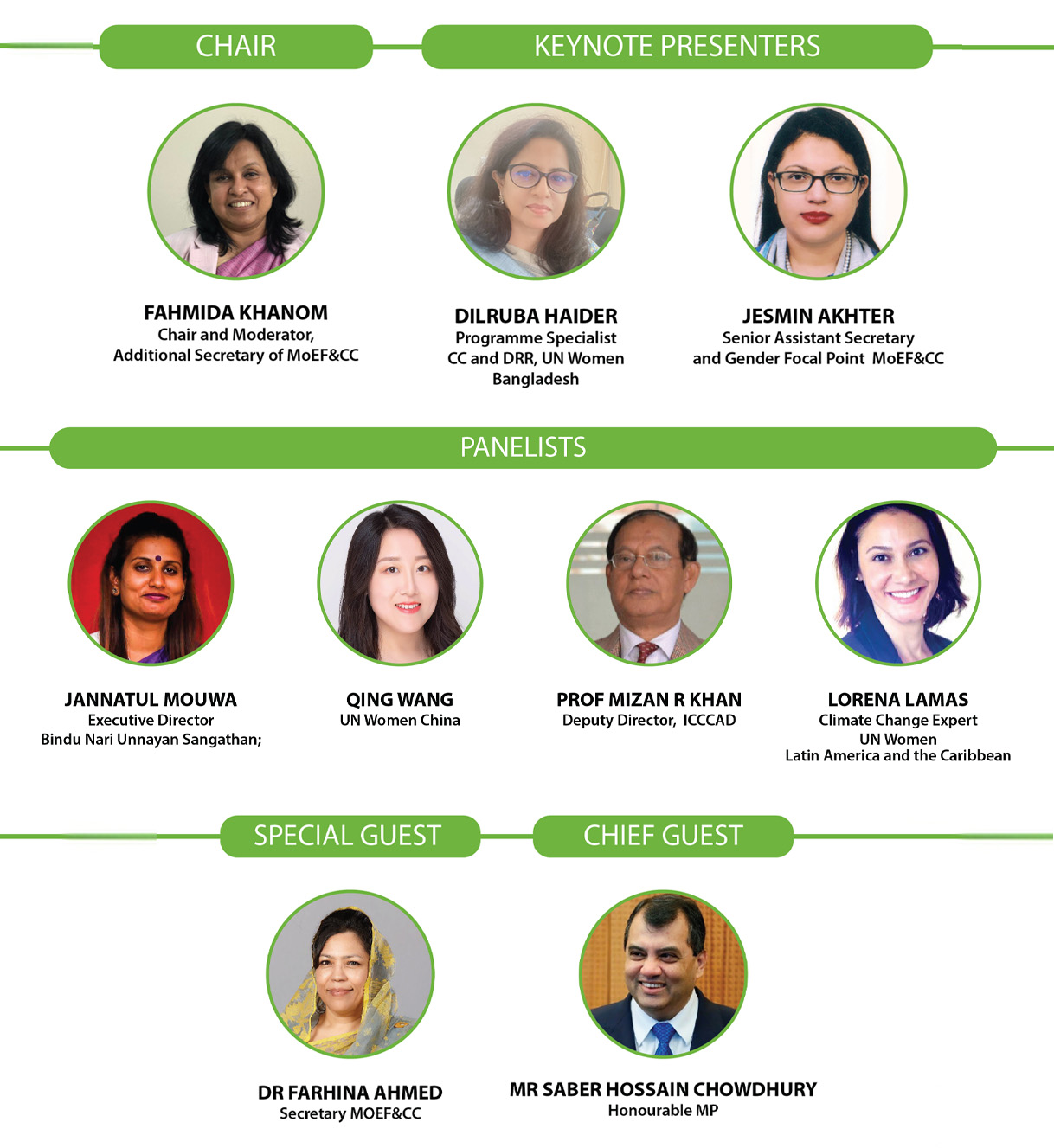
Women’s Leadership in Locally led Adaptation

Event description

Women’s Leadership in Locally led Adaptation
Date: 4 December 2023 | 11:100am - 12:30pm (Dubai time-zone)
Location: Bangladesh Pavilion: Zone B2, Bldg. 21.
People and communities on the frontlines of climate change are often the most active and innovative in developing adaptation solutions; however, most of the time they lack access to resources and agency needed to implement them effectively. Locally Led Adaptation (LLA) can unlock, support, and leverage the enormous potential and creativity of communities to develop and implement solutions. Shifting power to local stakeholders, without expecting them to shoulder the burden of adaptation investments, can catalyze adaptation that is effective, equitable, and sustainable.
Although climate change is affecting the entire planet and all people, it’s taking disproportionate tolls on women and girls. From mortality to education, health, violence, livelihoods, and nutrition; women are negatively and disproportionately impacted. A recent study by UN Women and UNICEF confirms this. Women’s unequal access to land and natural resources, finance, technology, decent work, social protection, and infrastructure constrains their resilience and ability to cope. Natural resource depletion and scarcity magnify the threat of sexual and gender-based violence, and it is intensifying women and girls’ already unequal share of unpaid care and domestic work – which in turn impedes women’s resilience and rights.
Some of the main principles of LLA, e.g., devolving decision-making to the lowest appropriate level with access to finance; addressing structural inequalities which are the root causes of climate vulnerability and ineffective adaptation actions; and understanding climate risks through a combination of traditional, indigenous, and scientific knowledge all require a gendered approach to LLA. The participation and leadership of women and girls are critical for making climate change adaptation initiatives effective and sustainable.
Women and girls are mobilizing climate and environmental actions everywhere. Still, their voices, agency, and participation are under-supported, under-resourced, under-valued, and under-recognized, reinforcing their low representation in governance and inadequate attention to their needs. Thus, gender-responsive climate and environmental policies, strategies, and actions are severely constrained. Women have been overlooked and excluded be it community level discussions or international policy consultations on climate actions.
In Bangladesh, there has been substantive progress with regards gender responsive risk reduction actions. The mortality ratio of men and women has been 1:1 in recent disaster events; the Cyclone Preparedness Programme (CPP) has 50 per cent of women volunteers across the coastal districts of the country that has contributed to reducing this gap in mortality ratio of men and women.
Globally as well as in Bangladesh, there’s a growing demand for women’s leadership in climate actions. Women led and women rights organizations have been playing a significant role in Bangladesh to promote locally led adaptation. The network of fifty-six women led organizations supported by UN Women has been spearheading this effort.
The objective of the side event is to showcase some of the actions from the ground, lessons learned, and way forward with regards women’s leadership in locally-led adaptation.
Format: In-person Keynote presentation, panel discussion and Q&A.
Speakers:

For more information about this event please contact:
Dilruba Haider
UN Women.
e: [ Click to reveal ]